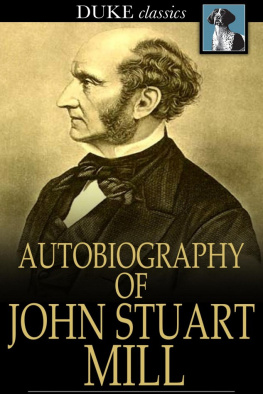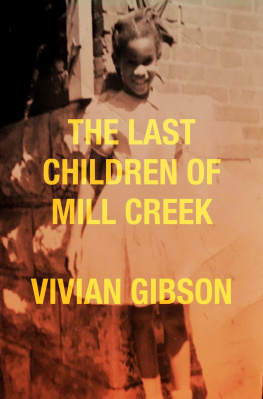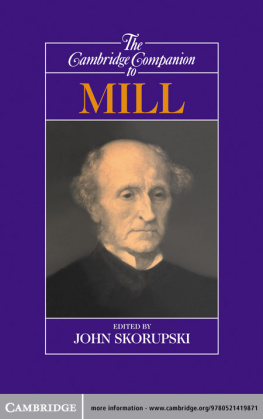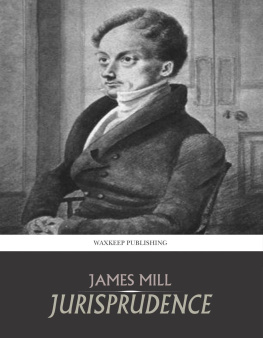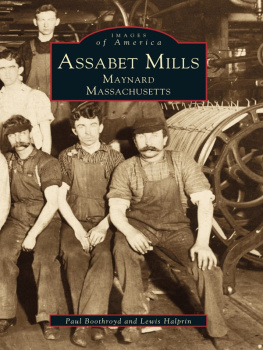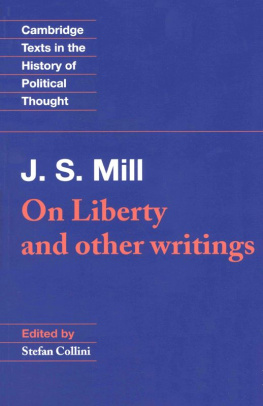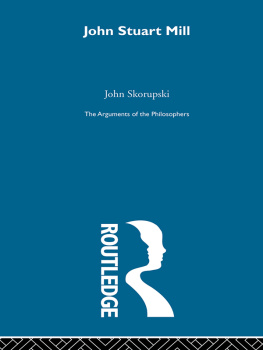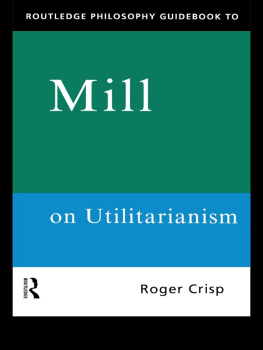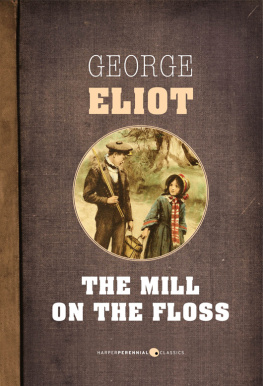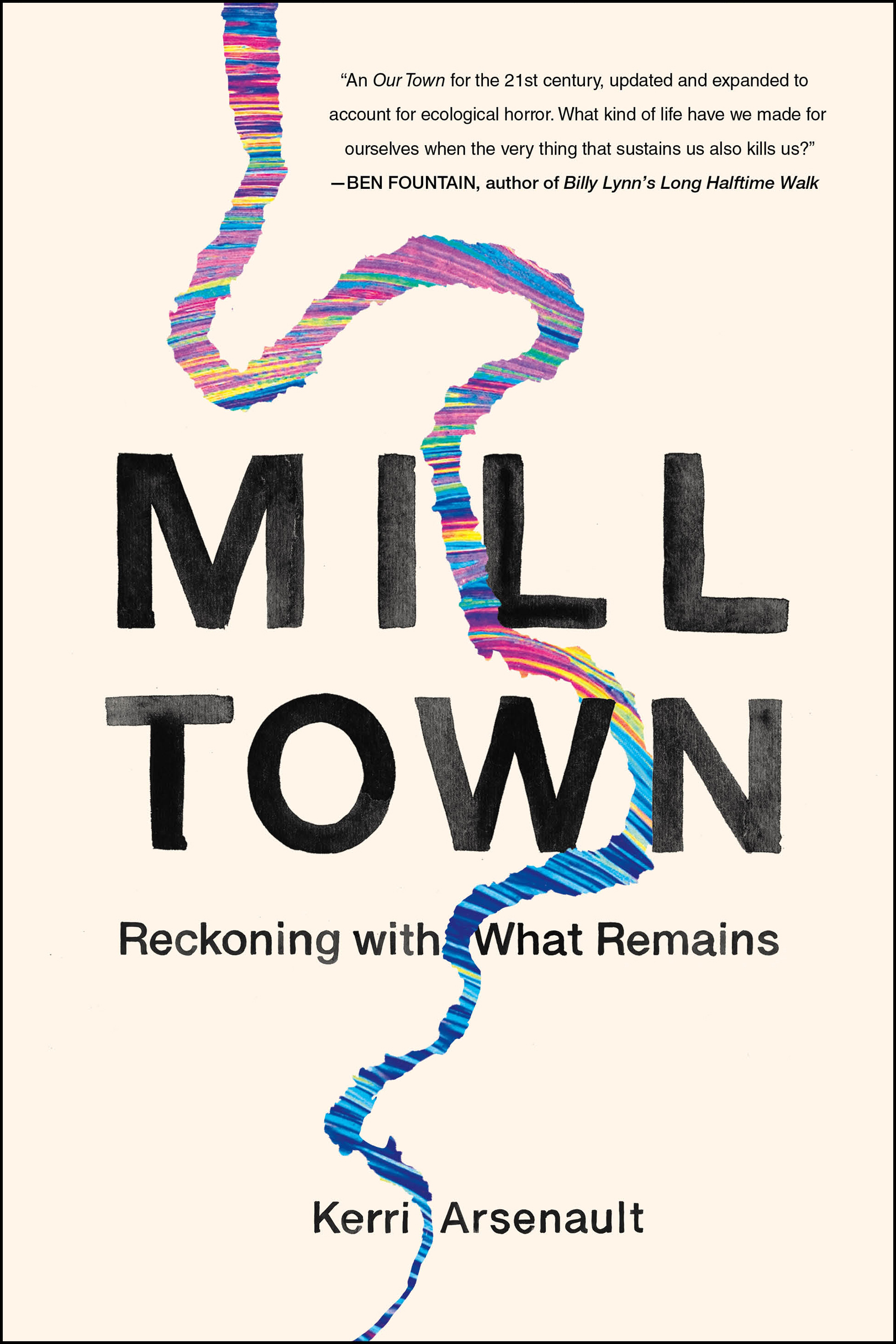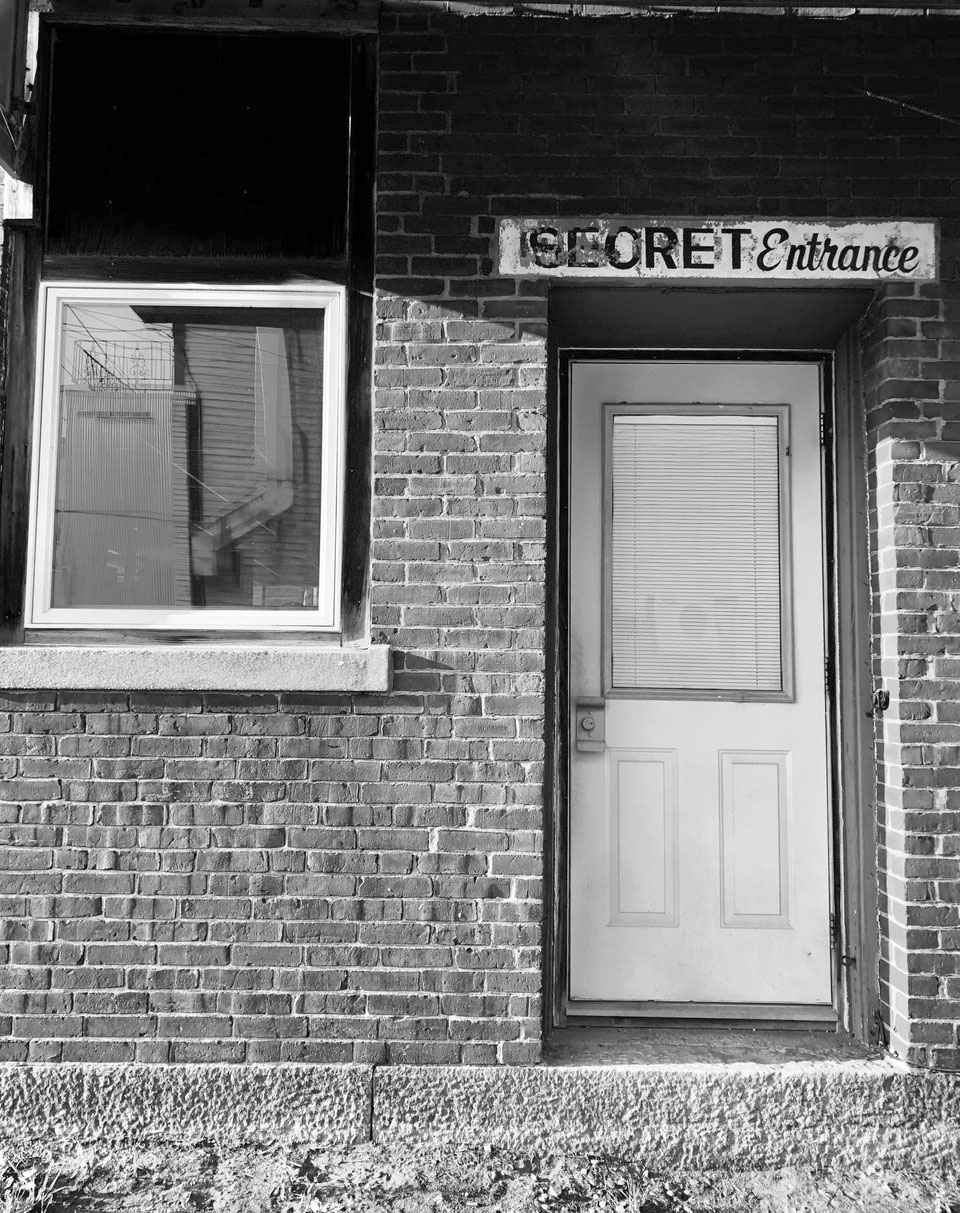The author and publisher have provided this e-book to you for your personal use only. You may not make this e-book publicly available in any way. Copyright infringement is against the law. If you believe the copy of this e-book you are reading infringes on the authors copyright, please notify the publisher at: us.macmillanusa.com/piracy.
Find out just what a people will submit to, and you have found out the exact amount of injustice and wrong which will be imposed upon them; and these will continue till they are resisted with either words or blows, or with both. The limits of tyrants are prescribed by the endurance of those whom they oppress.
Frederick Douglass, in a speech concerning West India Emancipation, delivered at Canandaigua, New York, August 3, 1857
MEXICO, MAINE IS a small paper mill town that lies in a valley, or River Valley as we now call the area, because I suppose you cant have one without the other. The hills are low and worn and carved by the waters surrounding them, and trees line the rivers, which confine the town. Coursing through the valleys midsection, the Androscoggin River.
Just across the S-hook in the river, in the neighboring town of Rumford, the mills smokestacks poke holes in the white plumes they create. Thats money coming out of those smokestacks, our fathers used to say about the rotten-smelling upriver drafts that surfaced when the weather shifted. That smell loitered amid the softball games we played beneath those stacks and lingered on our fathers shirtsleeves when they came home from work, allowing us to forgive the rank odor for what it provided.
Where stack meets sky, the wide, slow-moving Androscoggin pivots and bleeds south and east, under bridges and over rapids, pushing through dams, slinking around islands and along inlets, skidding through other mill towns of Jay, Lewiston, Topsham, Brunswick and picking up flotsam and jetsam or passengers in canoes. In the calmer sections, its velvety waters press on with the slow caress of lava and despair. Vapid pools form when the water has nowhere else to go, sheltering the rivers secrets in dark lagoons, where they congregate in the muck and fester like complicity. Sometimes the river pauses or eddies when it meets an obstacle and diverts into other routes, into unpredictable detours following the edges of its design. Yet it proceeds nonetheless.
Rivers are living bodies that need oxygen, breed life, turn sick, can be wrecked by neglect like human bodies, which we often think of as separate, not belonging to the landscape that bore them out; they tell a story, these bodies. They are the story.
In deep grottos of the past, the great polar ice cap melted into glaciers, and its calving mass crawled north, carving long, deep ruts that became the lakes and rivers of Maine. Our geologic past foretold everything about our future. But in this future, lives are un-lived, secrets never revealed, and stories remain unwritten about how much we all lose. In this future, I learn of asphalt lakes, people bulleted with disease, burning tires scarring the sky, the forsaken buried in unmarked graves, the evisceration and erasure of home. In this future, we pardon legislators who convince us nature will sort itself out. In this future, we will have forgotten everything that came before, and our only legacy for those who will supersede us is the promise of ruin. It started early, this ruining of bodies and the yawning of leaders who didnt care about a landscape so altered by us its reciprocating the abuse.
When I walk along the Androscoggin and over its bridges, I try to see the river as it was or could have been. Even in its current spoiled state, its still a thing of great agency, the transactions of its waters an awesome sight, wearing down granite and earth with the repeated force of its movement. Down at the rocky outcrops when my father was a boy, a park with a bandstand and grassy plateaus wrapped the town with music and tranquility. There, you can imagine the thunderous negotiation of the rivers turbulent waters as they passed, defeating the submissive notes of flutes and clarinets. Before my father, my grandfather walked in the same park where shrubs and flowers and little stones drew a path amid the shade of chestnuts that were about to die. Before him, Abenaki crouched along the Androscoggins edge to catch salmon lofting on its tide. Salmon had long flung their way upstream from the Atlantic to spawn, swimming past floodplains and alewives that gathered in the rivers current. Gristmills and pollution and dams and the lawmakers discouraged their run-ups but the hopeful salmon pressed on until they disappeared except for the few each year who still hurl themselves up and over that first dam wondering if by tenacity they will prevail. Their fate, it remains unknown.
FROM THE PORCH steps of the house where I grew up, youll see the end of the road. There, the pavement dips down to reveal the towns only traffic light, a gas station, and the roof of the Family Dollar store. Behind the store lies the Androscoggin and just beyond the river, the paper mills largest smokestack emerges like a giant concrete finger. From anywhere in town, you can orient yourself to this stack, or by the ever-present ca-chink ca-chink ca-chink of the mills conveyor belts, and find your way home even from a pitch-black walk in the woods. When mill shutdowns occur for holidays or layoffs, the smokeless stacks resemble the diseased birch trees dying throughout New England.
To the right of the porch youll see a street of clapboard homes, silent but for the occasional snarl of a jake brake on a logging truck or a motorcycle shifting gears. A mile or two out of town, the road narrows, and small creeks knit through pastures shadowed by hills, a working farm or two, a long straight road, and cut hay, muddy cow paths, rotting leaves, or black ice, depending on the time of year. The seasons, they calendared our lives.
Farther up the road youll eventually bump into the North Maine Woods. If you look at a map, youll get an idea of the yawning jurisdiction of the area, which lies (generally) within the twisted pavement of Route 2, Interstate 95, and the Canadian border, their lines lassoing the wilderness within. The Woods are a deluge of spruce, fir, hemlock, and beech, a steady brown and green canopy fractured by silvery brooks or iron gray lakes. The damp mossy understory and thick brush, claustrophobic with tangled twigs and scant cabins, hide the chewed-up dirt logging roads that colonize the backcountry. I didnt pay much attention to those darker, deeper woods because there were already so many trees right in our backyard.
My mother stayed home while my father worked: her making pot roast, him making smokestack money. As kids, we explored the world through textbooks and made classroom dioramas of what we thought a Mayan village or a Midwestern dairy farm looked like. The rest of the world seemed to be New Hampshire or Canada. Families didnt go on overseas vacations and rarely traveled interstate. Our lives were focused inward Red Sox games, union strikes, and grousing about the weather.


